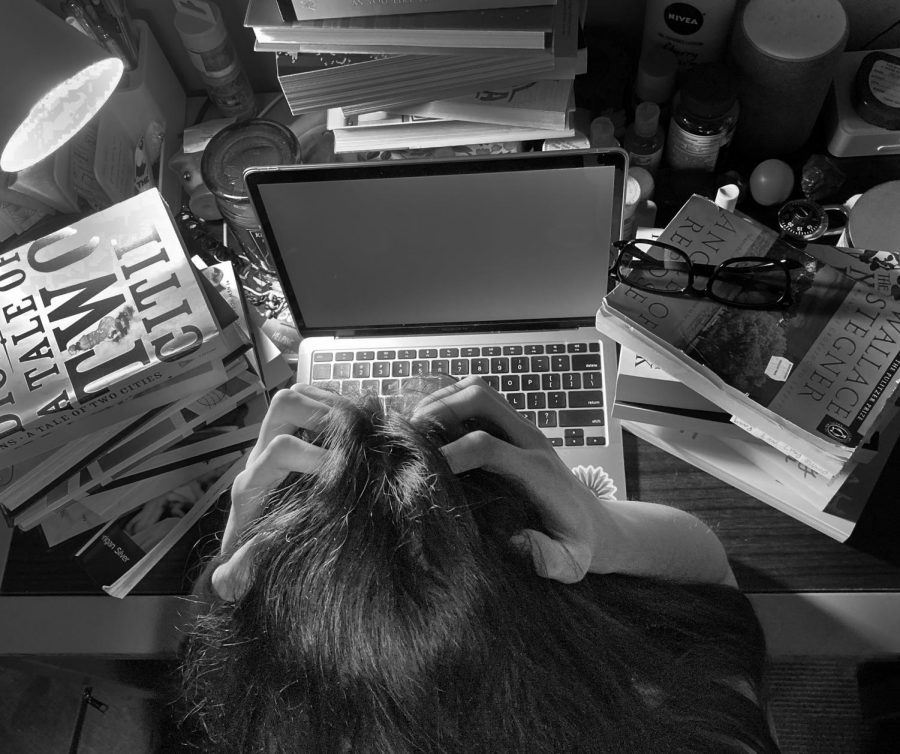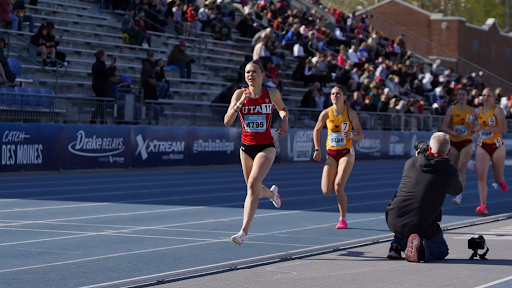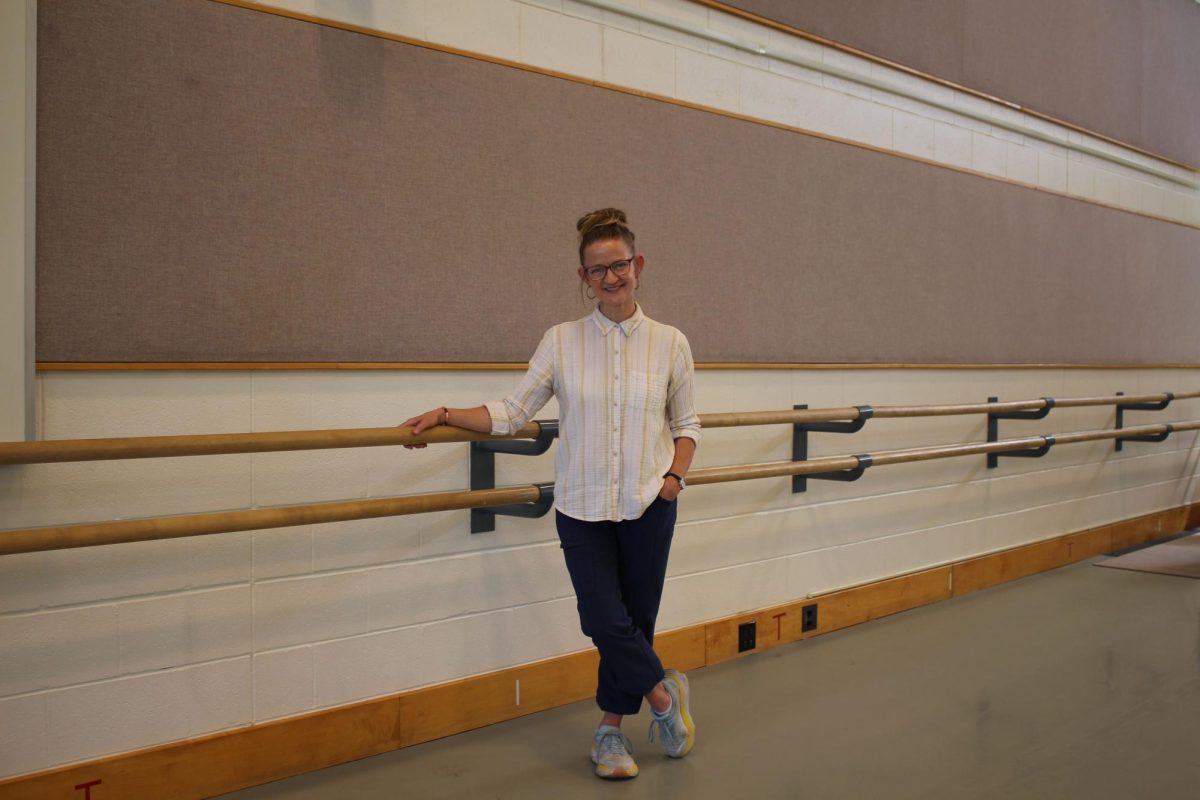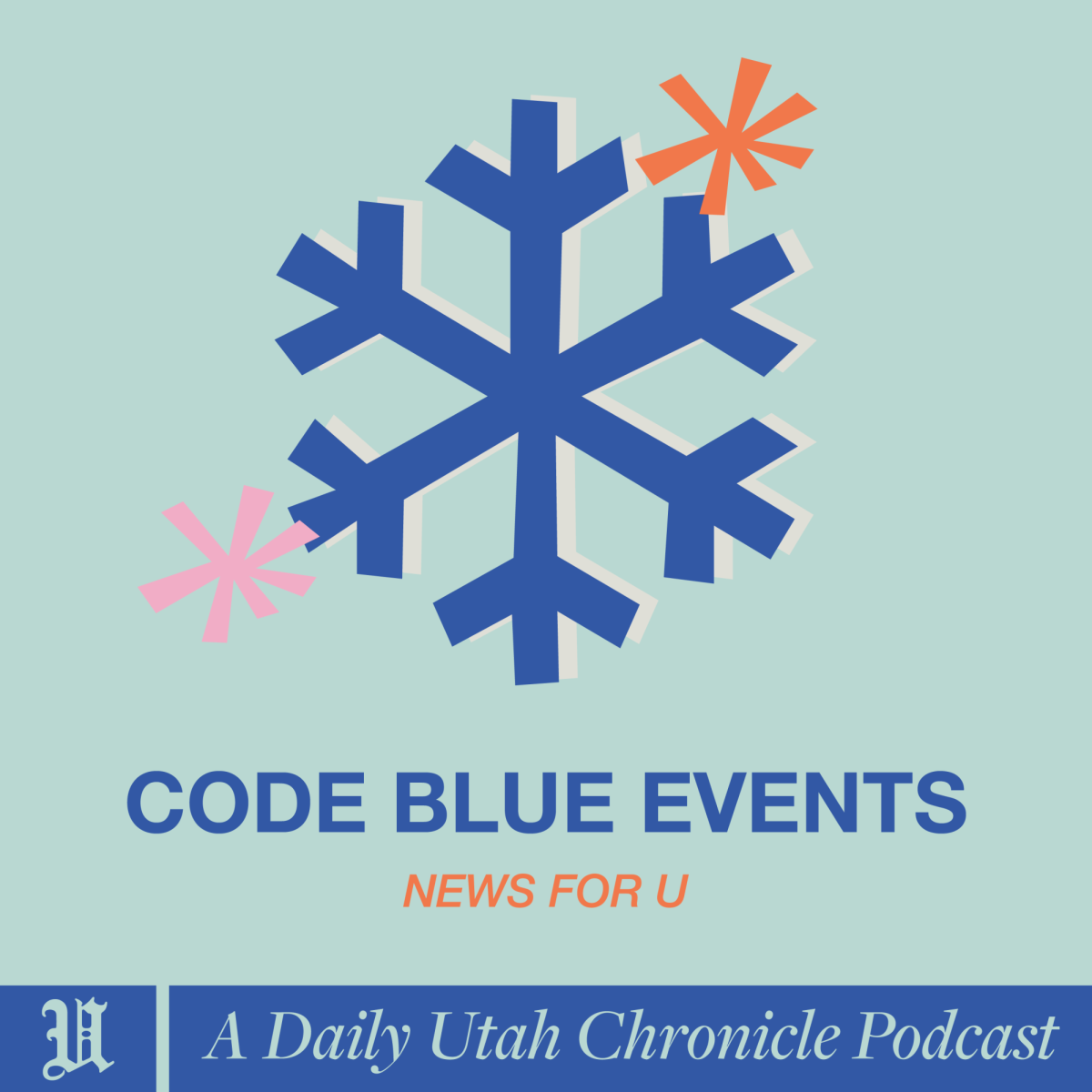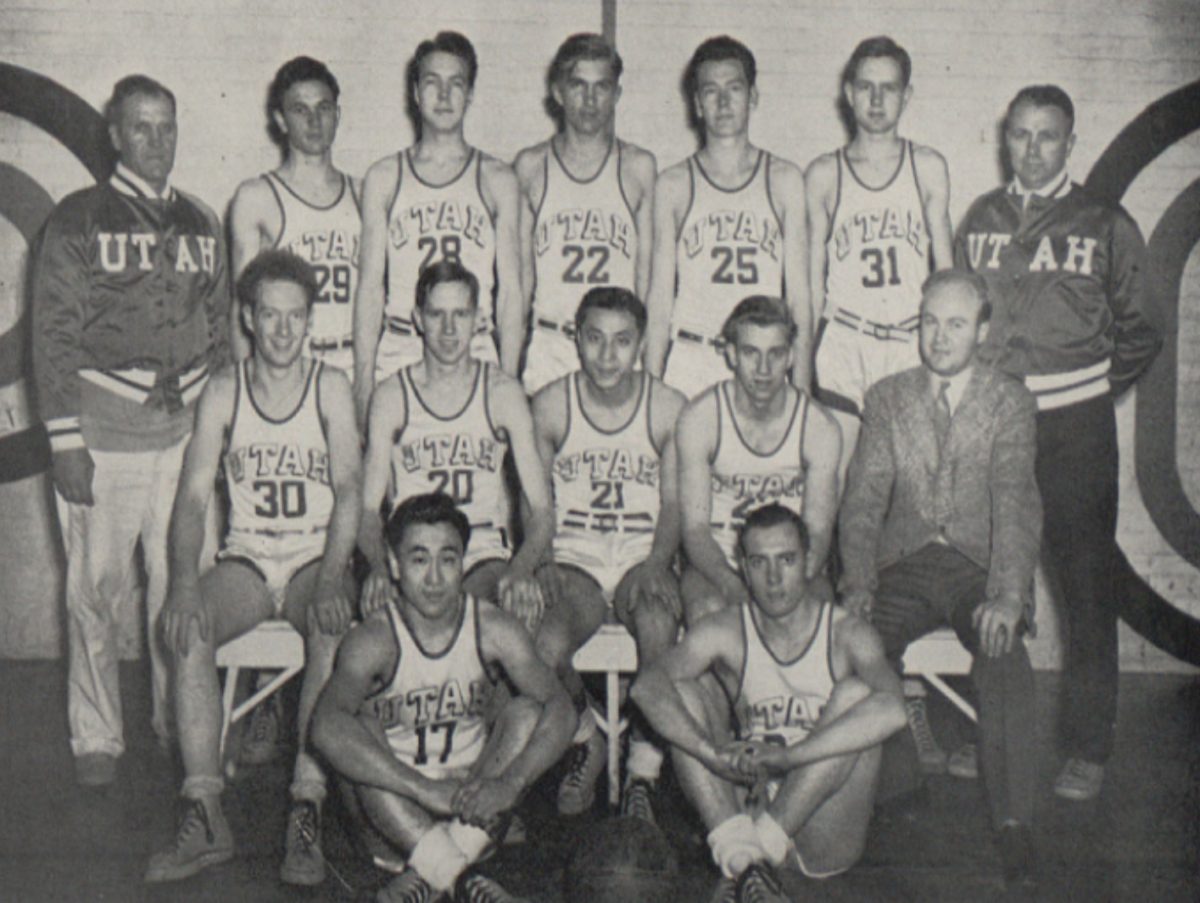Shadley: As Average GPAs Rise, So Does Inequality in Graduate Admissions
U student studying in 2021. (Photo by Hailey Danielson | The Daily Utah Chronicle)
March 23, 2021
March 12, 2021 marked the one-year anniversary of the University of Utah’s decision to move to remote learning. Examining the data from the past year makes it exceedingly clear that online learning has not come without unwelcomed outcomes. The financial burden of the pandemic, in tandem with online learning, has led to 49% of college students believing that the pandemic will negatively impact their ability to complete their degree. That number is higher, 56%, for Black and Hispanic students than it is for their white counterparts, 44%. While students struggling to complete college have had to postpone for a semester or two, those who have been financially capable of remaining in class have an entirely different story.
At the University of Utah, the average GPA from last Spring, Summer, and Fall semesters is noticeably higher than it has been in the past five years. Last spring, where the average GPA was 3.50, most universities across the country adopted a pass/fail system that allowed students to opt-in to a “Pass” grade on their transcript if they were unhappy with their letter grade towards the end of the semester. Naturally, students with lower grades in classes opted-in, while those with higher grades opted out. While this certainly alleviated unnecessary stress associated with the pandemic, it led to inflated GPAs. The summer semester had a similar explanation for the inflated GPAs, but fall, with pass/fail returning to normal, still led to higher GPAs than previous semesters. The implication is that, understandably, professors have been more lenient with students as we continue to deal with the pandemic. While higher GPAs have helped most students, a particular subsection of students is soon to experience negative consequences — those planning to apply for graduate school.
Quite intuitively, as students have higher GPAs, there will be more students with GPAs of the caliber of graduate admissions. For this year, many colleges are waiving the requirement to take the GRE as part of their admissions process. While the GRE is a pretty worthless indicator of one’s ability to do well in graduate school, the reality of removing it from the admissions process is that further emphasis will be placed on GPA and extracurricular activities. As a result, the GPA boost coming from COVID-19 will increase the number of competitive applicants even more.
Those most able to take advantage of the increased importance of extracurricular experience in graduate admissions are professionals, with years of experience, looking to return to school. People often choose to ride out a recession in graduate school with the hopes that they’ll be able to make more money and work more fulfilling jobs. Due to the economic recession of 2008, graduate school enrollment increased by 3 million in 2011. Not only will graduate admission rates be up from recent college graduates, but also people who have found themselves squeezed out of the workforce as a result of the economic crisis caused by COVID-19. In a few years, those who were delayed a few semesters due to the pandemic will be competing against those who received the benefits of grade inflation and those who worked after graduating college.
With all students receiving higher GPAs and professionals applying for graduate schools as well, the pressures to over-achieve academically in college will continue to climb. Already, as many as 2 in 5 kids and adolescents are perfectionists, those kids felt the pressure to achieve nearly perfect grades even before the increased competitiveness of graduate school admissions. Daniel Markovits, in his book The Meritocracy Trap, argues that much of the meritocratic system that is emblematic of university structures leads to those at the top overworking and those in the lower and middle classes unable to achieve upward mobility. This meritocratic system, accentuated by an online system that leads to even higher average GPAs, produces harm for nearly everyone. For privileged students hoping to further their education, it would be unsurprising to see rates of anxiety, depression and other mental health conditions associated with perfectionism increase. For those who haven’t been able to stay enrolled in college, the opportunity to achieve upward mobility via graduate school is looking less plausible.
COVID-19, online learning and pass/fail options have made graduate schools more competitive for all prospective students. Concerningly, the pandemic is increasingly likely to further inequality among graduate students. While it’s important to note that this is not a problem unique to the University of Utah (and not one that can be fixed without the commitment of all universities), this should be yet another indication of the importance of providing safe, challenging, in-person classes while providing financial support to students most affected by the pandemic.


